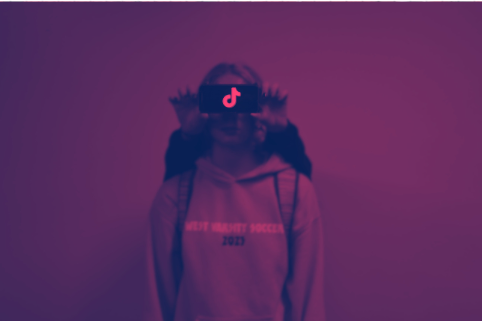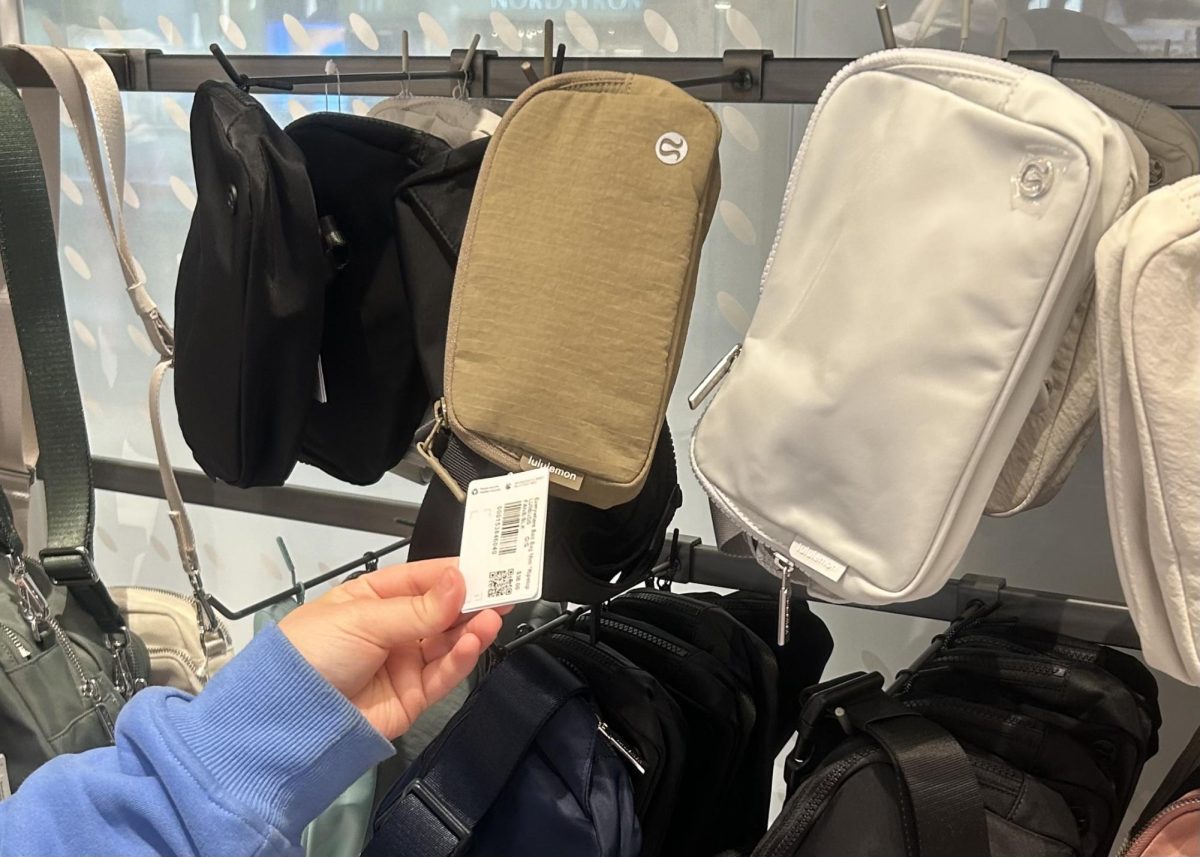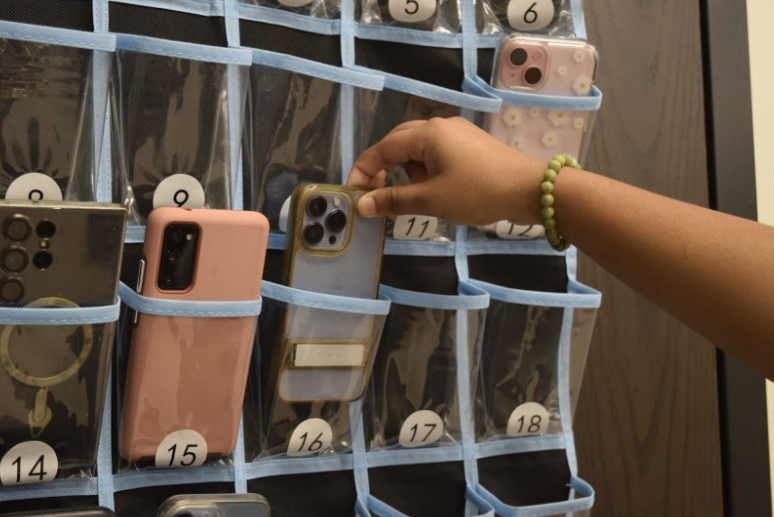In April, the Marquette Messenger published a fabulous piece arguing against a potential ban of the social media site TikTok. The article argued that economic benefits and freedom of expression should outweigh national security concerns. As the Messenger rightly said, TikTok can be a productive open forum for free expression. However, there are other forums available — and freedom is bigger than creating short videos. TikTok and its owner ByteDance pose a threat to the safety of the nation, so action must be taken.
Ban benefits
Last year, the New York Times asked several students whether a TikTok ban would be beneficial for the country. The response was divided: some were concerned about Chinese involvement or mental health issues; others found the focus on TikTok specifically hypocritical. Interestingly, multiple people noted that reforming firearm legislation would be far more important.
However, social media often plays a role in gun violence that occurs between young adults, due to threats and brinkmanship that spread easily on such platforms. School shooters have higher rates of depression than the general public — which is something that TikTok may exacerbate. The amplification of risk factors means that less TikTok use could also mean fewer shootings.
“[A ban on social media] could [be] really beneficial and really terrible at the same time. On one hand, I want to know how my grandma is doing without having to call her every couple [of] days. On the other hand, social media is toxic. That [ban] wouldn’t be the worst thing ever,” West High substitute teacher and TikTok user Charlie Woodruff said.
TikTok, which is massively addictive, has become the dominant platform for social media use among teens and tweens. Between its widespread use, and the presence of some evidence that total social media usage would decrease if TikTok were unavailable, there are reasons to believe that a ban of TikTok would keep youth away from screens. Over a third of polled adults said that they would not switch to another platform if TikTok were banned, although teenagers were not polled, and the self-reported results may be optimistic. If we can take people at their word, social media use would go down in the absence of TikTok. It’s worth noting that only decreases in overall social media use would actually impact the American economy; increased traffic on other sites would lead to increased revenue as well.
Rather than being an unimportant distraction or an unnecessary hindrance to the economy, removing access to TikTok could be an important first step in addressing the mental health and gun violence crises. However, these benefits don’t justify a ban on their own — the most pressing issue is TikTok’s impact on national security.
Security issues
The Chinese Communist Party has never used a nuclear weapon against the United States, but they still keep these powerful weapons in reserve. Similarly, there is little evidence that TikTok is currently used to spy on users, but that doesn’t mean that the app isn’t dangerous. Chinese employees of ByteDance have accessed U.S. user data, despite claims that such data is only stored in the U.S. and Singapore. Former Bytedance employee Yintao Yu has claimed under oath that similar backdoor access was granted to CCP officials, who used this data to spy on protests in Hong Kong. Though this is otherwise unverified, it’s entirely plausible that the CCP forced Bytedance to comply with its state-sponsored espionage.
Whether or not Bytedance wants to be a tool for its government’s agenda, it’s legally required to assist in Chinese surveillance if requested. The Party’s main strategy to force insubordinate industry titans to comply appears to be making them disappear. The ruthless disregard for personal rights is appalling, although it might not be unique to the CCP.
“I don’t see the difference between the U.S. government [having] all my info and the Chinese government collecting all my info. They both just want to sell me stuff,” Woodruff said.
Even though data collection hasn’t been observed, there is some evidence of TikTok being used in another way that undermines national security: propaganda. Director of the Federal Bureau of Investigation Christopher Wray has expressed concern over the amount of control the CCP may have over TikTok’s algorithm and content. The party has already used the app as a propaganda tool, creating a strong incentive for them to — legally or not — ensure that their message is seen by as many people as possible.
After a study found that content that the CCP dislikes is underrepresented on the app, the company restricted access to a tool that searched popular hashtags and broke links to hashtags related to international conflicts. Like Wray, Senator Marco Rubio has voiced fears that the party dominates TikTok; later, a CCP-controlled media outpost posted a TikTok attacking Rubio’s record. If the CCP did try to exert its influence over Bytedance, it wouldn’t be the first time. A failure to comply with socialist core values resulted in one of their platforms, a news app called Toutiao, being shut down, and the CEO who oversaw the company during that era resigned suspiciously during a later series of crackdowns.
Bytedance’s execs might very well be far more ethical than the suits who rule America’s social media platforms. It’s unlikely, considering that these are the same people who once censored information on the Tiananmen Square protests, but they say they’ve changed their guidelines since then. There’s even a possibility that, if a CCP emissary — or their CCP-linked editor-in-chief Zhang Fuping — tells them to hand over their vast trove of information or vanish, they’d make the right choice. Still, our government’s greatest enemy might have access to the powerful, irresistible weapon that is TikTok. Washington shouldn’t rest until they remove that possibility.
Constitutionality
“There’s a lot of laws about TikTok that I have no idea about that I should probably pay more attention to, but it’s easy to get sucked in by the content and just keep scrolling and scrolling and not even realize that they could be taking your data,” TikTok user and freshman Eva May said.
TikTok’s addictive hold on its user base is strong, and U.S. foreign policy concerns won’t be enough to shake it. If the government wants to protect the people, it will have to infringe on liberties. I disagree with the Messenger’s claim that this would be in violation of the First Amendment; the action would merely be the removal of a public speech forum, not censorship of particular speech. According to former Center for Democracy and Technology Free Expression Project deputy director Caitlin Vogus, a TikTok ban would have to be specifically targeted to address a significant threat to the public in order to be constitutional, a threshold referred to as “intermediate scrutiny standard.” This standard has been used frequently by district courts to uphold limits on the public carry of firearms, establishing that you can restrict people’s right to use a dangerous weapon if its risks are established.
West High government teacher Mel Trotier teaches about the Constitution in his AP US Government class. First amendment rights and varying levels of scrutiny would be just a hobby for many; for Trotier, they’re curriculum.
“A national ban on TikTok would take some kind of national security threat. Do we have actual evidence of the Chinese government trying to use TikTok to steal state secrets, spread propaganda in some way, shape or form interfere with elections or any of those significant national security issues? I don’t think China making a bank of freshman TikTok dances in the breezeway is enough for the government to get involved. It would have to be something national level,” Trotier said.
Proof of domestic interference does not exist yet. TikTok may very well be innocuous, and we haven’t yet found the proverbial blue dress confirming that we’ve been lied to. However, there’s enough evidence of suspicious activity to take action before a national emergency proves the danger of the platform beyond a reasonable doubt. The Chinese Communist Party has no regard for the basic human rights of their own citizens. We cannot trust them with influence over ours.



![Senior Dhiya Prasanna examines a bottle of Tylenol. Prasanna has observed data in science labs and in real life. “[I] advise the public not to just look or search for information that supports your argument, but search for information that doesn't support it,” Prasanna said.](https://pwestpathfinder.com/wp-content/uploads/2025/10/DSC_0073-2-1200x800.jpg)
![Junior Fiona Dye lifts weights in Strength and Conditioning. Now that the Trump administration has instituted policies such as AI deregulation, tariffs and university funding freezes, women may have to work twice as hard to get half as far. "[Trump] wants America to be more divided; he wants to inspire hatred in people,” feminist club member and junior Clara Lazarini said.](https://pwestpathfinder.com/wp-content/uploads/2025/05/Flag.png)
![As the Trump administration cracks down on immigration, it scapegoats many immigrants for the United States’ plights, precipitating a possible genocide. Sophomore Annabella Whiteley moved from the United Kingdom when she was eight. “It’s pretty scary because I’m on a visa. When my visa expires next year, I’m not sure what’s going to happen, especially with [immigration] policies up in the air, so it is a concern for my family,” Whiteley said.](https://pwestpathfinder.com/wp-content/uploads/2025/05/DSC_0077-7copy.jpg)
![Shifting global trade, President Donald Trump’s tariffs are raising concerns about economic stability for the U.S. and other countries alike. “[The tariffs are] going to pose a distinct challenge to the U.S. economy and a challenge to the global economy on the whole because it's going to greatly upset who trades with who and where resources and products are going to come from,” social studies teacher Melvin Trotier said.](https://pwestpathfinder.com/wp-content/uploads/2025/05/MDB_3456-1200x800.jpg)



![Some of the most deadly instances of gun violence have occurred in schools, communities and other ‘safe spaces’ for students. These uncontrolled settings give way to the need for gun regulation, including background and mental health checks. “Gun control comes about with more laws, but there are a lot of guns out there that people could obtain illegally. What is a solution that would get the illegal guns off the street? We have yet to find [one],” social studies teacher Nancy Sachtlaben said.](https://pwestpathfinder.com/wp-content/uploads/2025/01/DSC_5122-1200x800.jpg)



Bryson Meriac • Feb 10, 2024 at 4:37 pm
I think banning TikTok isn’t really right to do. As Trotier said, there needs to be an actual problem, which doesn’t seem like right now. Also, the point about depression says it will improve without TikTok, but YouTube Shorts is basically the same thing without the CCP. This was a great article!